Alive Blog
Nutrition
The body fuel
In this post, we explore the often underestimated but crucial aspect of correct nutrition and its profound impact on your overall health and well-being. Discover how nourishing your body with the right nutrients can unlock the full potential of your chiropractic journey.
The foundation of health: proper nutrition.
Proper nutrition serves as the fundamental cornerstone of our health and well-being, playing a pivotal role in supporting various bodily functions and maintaining optimal physiological balance. A balanced and nutritious diet provides essential nutrients, vitamins, minerals, and energy necessary for growth, repair, and overall functioning of our organs and systems. It helps in strengthening the immune system, enabling the body to fend off infections and illnesses more effectively. Additionally, proper food supports cardiovascular health by regulating cholesterol levels and blood pressure, reducing the risk of heart disease. It also contributes to maintaining a healthy weight, reducing the likelihood of obesity-related conditions such as diabetes and joint problems. Moreover, a well-nourished body facilitates cognitive functions, enhancing memory, focus, and mood stability. Beyond the physical benefits, it fosters mental and emotional well-being, boosting self-esteem and promoting a positive outlook on life. By recognizing that our bodies are intricately interconnected systems, we can acknowledge that the quality of nutrition we provide ourselves directly impacts our vitality, longevity, and overall quality of life, making it an indispensable foundation for achieving and maintaining optimal health.
Fueling our body for wellness.
Just as a high-performance car requires premium fuel to run smoothly, your body needs quality nutrition to function at its best. We delve into the significance of consuming whole, nutrient-dense foods that provide sustainable energy, support immune function, and aid in the maintenance of healthy body weight. Discover the power of clean eating and its positive impact on your musculoskeletal system.
Nutrients for optimal joint and bone health.
Optimal joint and bone health require a combination of various nutrients that support bone density, cartilage health, and overall joint function. Here are some key nutrients that play a vital role in promoting joint and bone health:
Calcium: it is essential for maintaining strong bones and teeth. It helps in bone mineralization and supports bone density. Good sources of calcium include dairy products (milk, yogurt, cheese), fortified plant-based milk, leafy greens (kale, broccoli), and tofu.
Vitamin D: Crucial for calcium absorption and utilization in the body. It helps regulate calcium levels and supports bone health. Vitamin D is synthesized in the skin when exposed to sunlight and can also be found in fatty fish (salmon, mackerel), fortified foods, and supplements.
Magnesium: it works in conjunction with calcium and vitamin D to maintain bone density and strength. It also supports muscle function and may help alleviate joint discomfort. Magnesium-rich foods include nuts, seeds, whole grains, and leafy green vegetables.
Vitamin K: Vitamin K is involved in bone formation and helps activate specific proteins that contribute to bone health. Good sources of vitamin K include leafy greens (spinach, kale), broccoli, and Brussels sprouts.
Omega-3 Fatty Acids: particularly EPA and DHA, have anti-inflammatory properties that can help reduce joint inflammation and support overall joint health. Fatty fish (salmon, mackerel), chia seeds, and flaxseeds are excellent sources of omega-3s.
Collagen: it is a protein that forms the structure of cartilage and helps maintain the integrity of joints. Collagen supplements and collagen-rich foods like bone broth, chicken skin, and fish skin can support joint health.
Vitamin C: Vitamin C is essential for collagen synthesis, which is vital for the health of cartilage and connective tissues in joints. Citrus fruits, strawberries, bell peppers, and broccoli are good sources of vitamin C.
Zinc: it plays a role in bone mineralization and collagen synthesis. It can be found in foods like meat, shellfish, legumes, nuts, and seeds.
Boron: Boron is a trace mineral that may support bone health by influencing calcium metabolism. Plant-based foods like nuts, avocados, and dried fruits are natural sources of boron.
A well-balanced diet that incorporates these nutrients along with regular weight-bearing exercises and a healthy lifestyle can help support optimal joint and bone health throughout life. Short periods of fasting could be beneficial if done under expert’s supervision, especially to stabilise blood glucose levels (more here). If you have specific health concerns or conditions related to joints or bones, it’s essential to consult with a healthcare professional for personalized advice.

Inflammation. Healing, and Nutrition.
Inflammation is a common underlying factor in many health conditions, including musculoskeletal issues. We shed light on the connection between nutrition and inflammation, discussing how anti-inflammatory foods can support the body’s natural healing processes and help manage pain and discomfort. Inflammation is a natural and essential part of the body’s immune response to injury, infection, or harmful stimuli. It’s a protective mechanism that helps the body heal and fight off potential threats. However, chronic inflammation, which persists over time without resolving, is linked to various health issues, including cardiovascular disease, diabetes, arthritis, and even certain types of cancer.
Diet plays a significant role in influencing inflammation levels in the body. Certain foods can promote inflammation, while others can help reduce it. Foods that are high in sugar, unhealthy fats, and refined carbohydrates are often associated with promoting inflammation. Here are some examples:
Sugar – Excessive sugar intake, especially added sugars, can lead to increased inflammation. High sugar consumption triggers the release of inflammatory cytokines, which are signaling molecules that play a role in the immune response. Take a look here, if you are interested in why you should not consume sugar when you are sick.
Processed and Refined Carbohydrates – Foods like white bread, pastries, and sugary cereals are high in refined carbohydrates. These foods can cause rapid spikes in blood sugar levels, leading to inflammation over time.
Trans Fats – Trans fats, often found in fried and processed foods, can increase levels of inflammatory markers in the body. They also have negative effects on heart health.
Saturated Fats – While the relationship between saturated fats and inflammation is complex, diets high in saturated fats (often found in red meat, full-fat dairy, and some tropical oils) may contribute to inflammation, especially when consumed in excess.
Omega-6 Fatty Acids – Omega-6 fatty acids are essential, but an imbalance between omega-6 and omega-3 fatty acids can lead to inflammation. Many processed foods and vegetable oils are high in omega-6s.
Highly Processed Foods – Foods with additives, preservatives, and artificial ingredients can trigger inflammation due to the body’s response to foreign substances.
Conversely, certain foods can help reduce inflammation:
Fruits and Vegetables: Rich in antioxidants and phytonutrients, fruits and vegetables have anti-inflammatory properties. Berries, leafy greens, and brightly colored vegetables are particularly beneficial.
Omega-3 Fatty Acids: Found in fatty fish like salmon, mackerel, and sardines, as well as in flaxseeds and walnuts, omega-3s have anti-inflammatory effects.
Nuts and Seeds: Almonds, walnuts, and chia seeds contain healthy fats and antioxidants that can help combat inflammation.
Whole Grains: Whole grains like brown rice, quinoa, and whole wheat contain fiber and nutrients that contribute to lower levels of inflammation.
Healthy Oils: Olive oil, rich in monounsaturated fats and antioxidants, has anti-inflammatory properties.
Spices: Turmeric, ginger, and garlic contain compounds with anti-inflammatory effects.
Overall, a balanced and diverse diet that focuses on whole, minimally processed foods and limits added sugars and unhealthy fats can help mitigate chronic inflammation. Keep in mind that individual responses to specific foods can vary, so it’s essential to listen to your body and make dietary choices that align with your health goals.
Customizing Your Nutrition Plan
Just as every body is unique, your nutritional needs may vary based on factors such as age, lifestyle, ethical and moral implications, or specific health concerns. We provide practical guidance on tailoring your nutrition plan to optimize your chiropractic journey. From seeking professional advice to incorporating mindful eating practices, you’ll find actionable tips to make informed dietary choices that align with your individual needs.
At Alive Chiropractic, we believe in a holistic approach to wellness, where chiropractic care and correct nutrition work together to enhance your overall health and vitality. By understanding the importance of proper nutrition and making informed choices, you can amplify the benefits of chiropractic treatments, promote optimal healing, and achieve a higher quality of life. Embrace the power of correct nutrition on your chiropractic journey today!
Visit our Facebook page, click here!
Edoardo Elisei DC
Alive Chiropractic LTD
alivechiropractic.co.uk
1C Crown Gate Square
POUNDBURY
23/05/2023
A collection of informative and engaging videos that offer visual insights into the world of chiropractic care. Visual content is a powerful tool for education and empowerment, allowing you to deepen your understanding of chiropractic principles, techniques, and the benefits of maintaining a healthy spine.

Chiropractic techniques
Chronic lower back pain is one of the most common musculoskeletal conditions causing disability and absence from work worldwide.

What is pain?
Sometimes, neck pain can be accompanied by radiating pain towards the shoulder blade or – in some cases – towards the arms.

How often should I see my chiropractor?
If you suffer from frequent headaches or migraines, chiropractic care can provide effective relief.






















